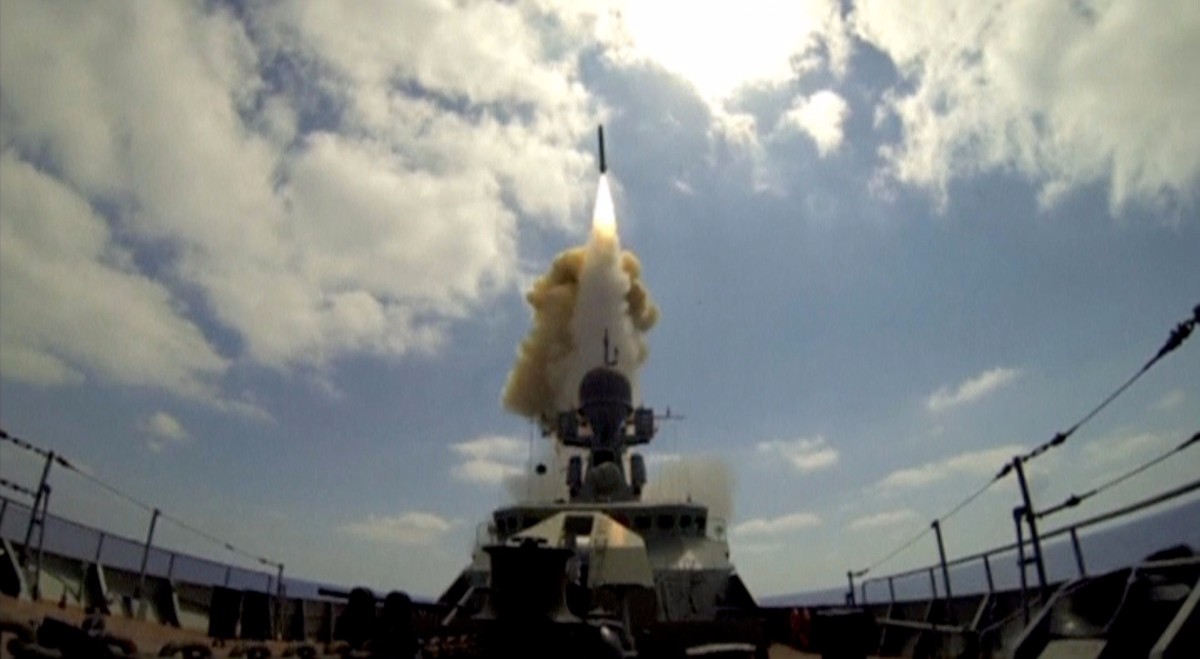 Russian Sea-Launched Cruise Missile. Russian MoD photo.
Russian Sea-Launched Cruise Missile. Russian MoD photo.
US Should Respond to Russia’s Violation of INF Treaty
Russia has deployed a series of land-based cruise missiles in direct violation of the Intermediate Nuclear Forces (INF) Treaty. This is an unnecessary provocation that warrants a swift response by the United States, as the only other signatory of the treaty. As the INF treaty does not cover sea-based cruise missiles, a capability which Russia recently demonstrated during its attacks in Syria, the deployment of land based cruise missiles by Russia is redundant and serves no strategic purpose. Therefore, the U.S. must conclude that this deployment, at this time, is intended to test American commitment to stand up for nuclear arms control agreements.
In 1987, the INF Treaty brought the SS-20 crisis in Europe to a formal close after several years of negotiation and nearly a decade of increased tensions. During this time, the United States pursued a dual track policy of deploying equivalent nuclear systems while pursuing negotiations with Russia to remove the missiles.
Today, Russian deployment of ground launched cruise missiles echoes this time period. For the past several years, the Obama administration has raised concerns about Russian testing of these missiles. In October, leading Republican Members of Congress stated that Russia was already in “material breach” of the INF Treaty. This failed to prevent the current blatant violation. The Trump administration should make abundantly clear to Russia that this is an unacceptable act, and begin implementing a plan to address the provocation. Russia must be shown that the United States takes violations of nuclear treaties very seriously, and does not let them go unanswered.
The United States should call a meeting of the Special Verification Commission to immediately address the issue. It should also have a clearly laid out list of consequences it intends to follow to address Russian violation of the treaty. This may include the deployment of pre-existing nuclear-capable assets that put pressure on Russia to cease this violation. Russia must not be allowed to violate treaties needlessly without equivalent consequences.
Equivalency does not imply that the U.S. needs to develop a ground launched intermediate range cruise missile of its own. It has intentionally destroyed, dismantled, or retired these weapons in conjunction with the INF treaty. Such weapons are strategically useless and redundant given other U.S. nuclear capabilities. They are ultimately a waste of funding given the more practical needs of replacing or updating America’s other aging military equipment that actually sees regular use. However, Congress has asked, in the FY16 Defense Authorization Act, for the U.S. to begin development of a new ground-launched cruise missile in response to the ongoing Russian provocation. The deployment of any alternative nuclear-capable assets in response to the Russian violation should be done so with the clear understanding that their deployment is as a result of Russian action. Withdrawal of these assets should be made only with Russian compliance with the treaty.
It is important to consider that the negotiation of the INF treaty took years to complete. It was not a fast process, and addressing this violation may not produce immediate results. But despite this, a system of consequences that compels Russia to come back into compliance is crucial to upholding the credibility of nuclear deterrence in the 21st century.





